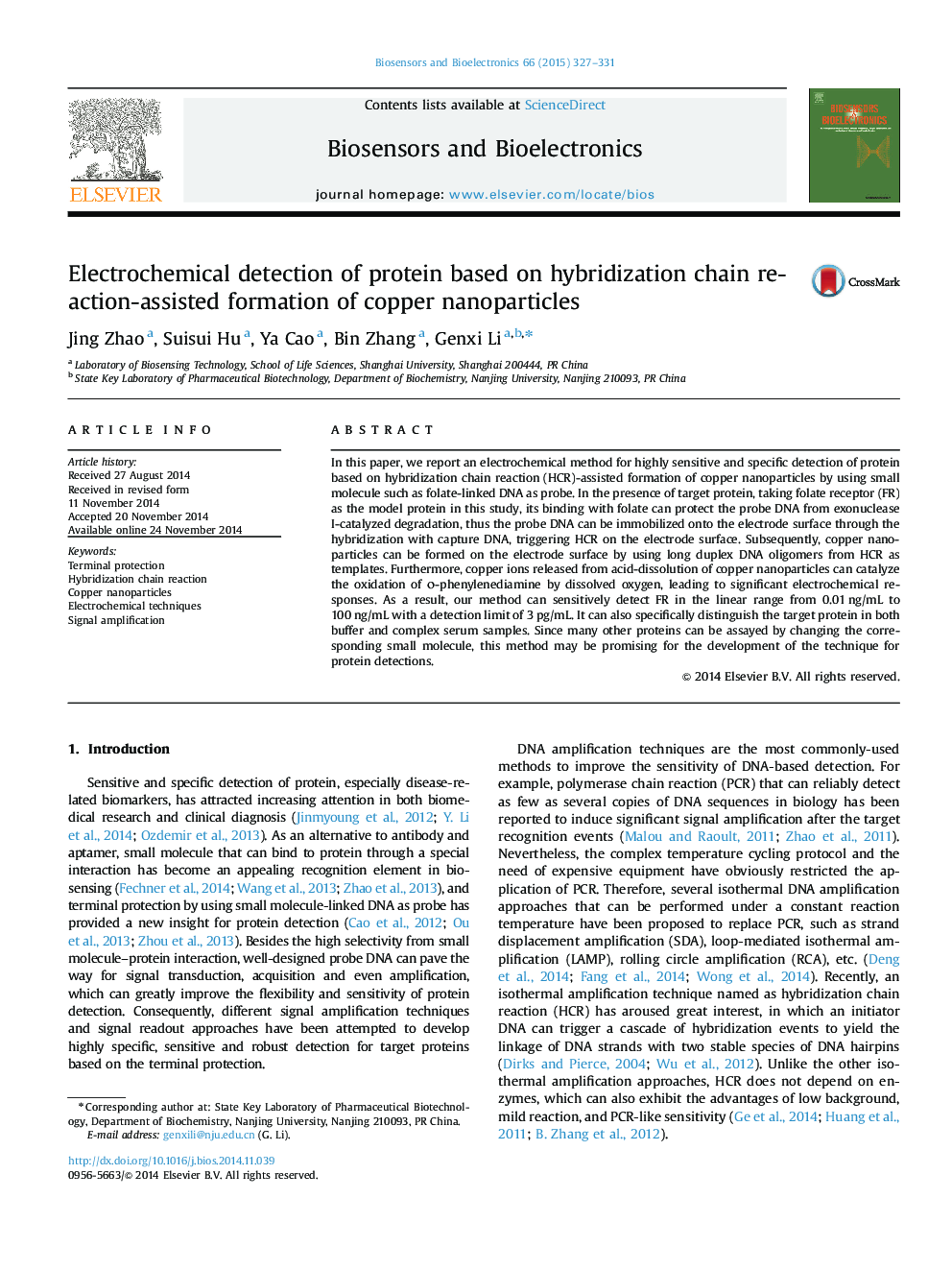| Article ID | Journal | Published Year | Pages | File Type |
|---|---|---|---|---|
| 7232689 | Biosensors and Bioelectronics | 2015 | 5 Pages |
Abstract
In this paper, we report an electrochemical method for highly sensitive and specific detection of protein based on hybridization chain reaction (HCR)-assisted formation of copper nanoparticles by using small molecule such as folate-linked DNA as probe. In the presence of target protein, taking folate receptor (FR) as the model protein in this study, its binding with folate can protect the probe DNA from exonuclease I-catalyzed degradation, thus the probe DNA can be immobilized onto the electrode surface through the hybridization with capture DNA, triggering HCR on the electrode surface. Subsequently, copper nanoparticles can be formed on the electrode surface by using long duplex DNA oligomers from HCR as templates. Furthermore, copper ions released from acid-dissolution of copper nanoparticles can catalyze the oxidation of ο-phenylenediamine by dissolved oxygen, leading to significant electrochemical responses. As a result, our method can sensitively detect FR in the linear range from 0.01 ng/mL to 100 ng/mL with a detection limit of 3 pg/mL. It can also specifically distinguish the target protein in both buffer and complex serum samples. Since many other proteins can be assayed by changing the corresponding small molecule, this method may be promising for the development of the technique for protein detections.
Keywords
Related Topics
Physical Sciences and Engineering
Chemistry
Analytical Chemistry
Authors
Jing Zhao, Suisui Hu, Ya Cao, Bin Zhang, Genxi Li,
